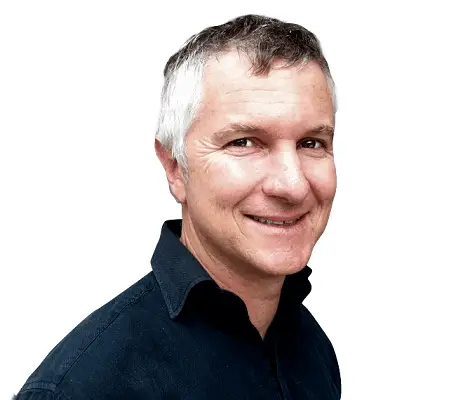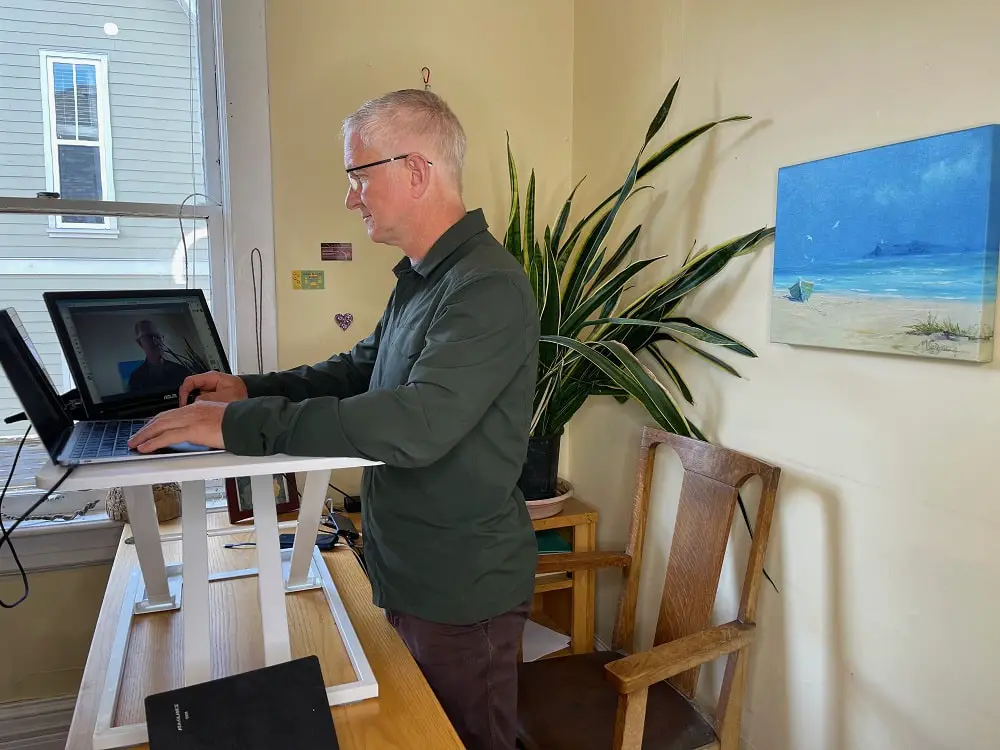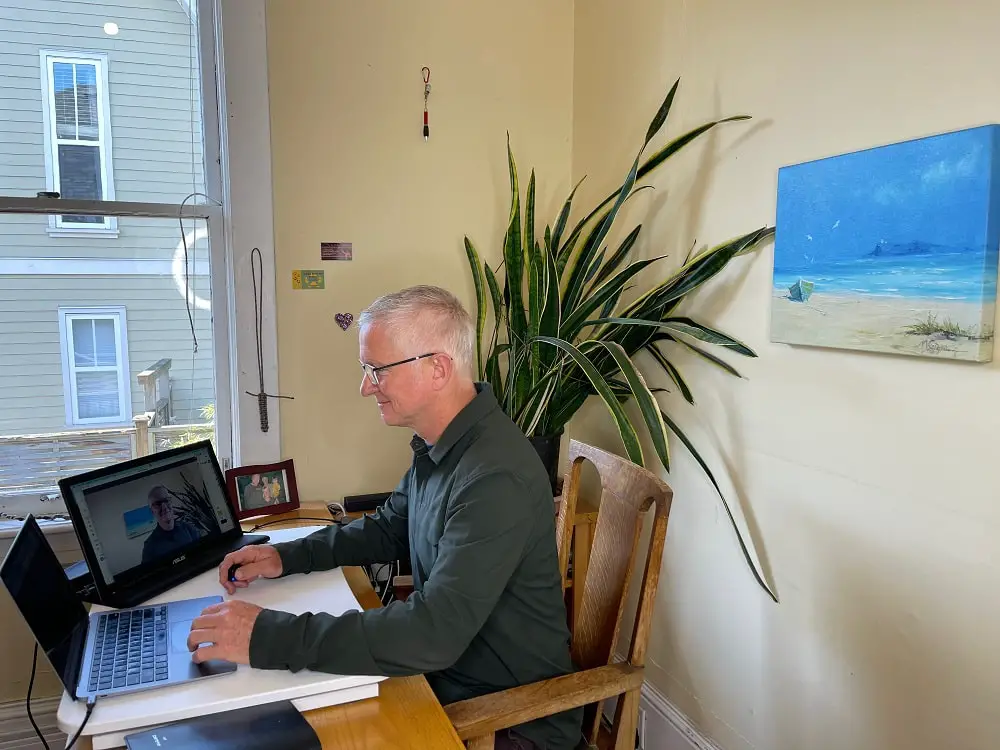Day in the life of
Naturopathic Doctor – Michael Smith N.D. BHSC (Naturopathy)

I am a licensed naturopathic doctor who has been helping people on their wellness journey for over 15 years. I specialize in Digestion and Hormonal dysfunction functional medicine and nutrition, which means that my goal is to help people to get to the root cause of the problem, rather than just treating the symptoms.
I do laboratory testing like blood tests, stool tests, and hormonal dysfunction tests. I provide consulting services and guidance to people about their health issues and dietary plans. I analyze diet and nutrition, as well as, I do detailed functional pathology testing to find out what factors may be contributing to current health problems. I come up with a personalized plan tailored to meet individual’s needs to achieve optimal health!
My typical day
Almost every day, I have a similar schedule.
I am lucky enough to work 100% online which has been helpful especially with the situation over the past year. This has many advantages in that I can choose my own hours so that I have time for school drop-off and time with my family, but it also means that I work some unusual hours – however, I had a past life as a chef so I am used to that.
Plus with working with clients from around the world I need to be flexible with my consultations to fit people in from Europe, Australia, and North America.
Here is a typical day for me if it is a consultation day – I do consultations 4 days a week and keep one day for research and keeping up with my own writing.
The morning – I am normally up early and from 6:30 or 7am to 8am I focus on emailing clients that I have consulted with the day before their treatment plans, while people may have similar symptoms the treatment can vary from person to person so this has to be customized.
I will also make sure that new orders for functional pathology test kits, stool kits, and hormone testing are ordered and they are shipped out from the lab.
8am to 9am: This is the time to drop my daughter at school and take out dogs for a walk.
9am to 10pm: I make sure I am ready for the day’s consultations, get client files in order, and prepare for the day.
10am to 5pm: This is consultation time, appointments are usually 30 to 60 minutes long and on a typical day I will consult with 6 to 8 people. All consultations are via Zoom and I do detailed digestion, hormone, and pathology testing with clients which helps to take out the guesswork with why they are experiencing symptoms so that we can get to the root cause of their problem.
*30 minutes set aside for school pick up.

I like to do my consultations standing up
5pm to 8pm: This is family time, and one of our favorite activities is to get out and play tennis and we also try and eat quite early.
8pm to 9:30pm: A couple of nights a week I will do consultations at this time to fit into the Australian time zone, or I will spend this time analyzing test results, research, and catching up on the business side of things
Relax for an hour before sleeping.
While it is a long day I love my work and the flexibility that it gives me, if I need to do something in the day have a school event on I can block out the time in my diary and make sure that I have the time to do it. Working like this over the past few years started as a necessity as I lived between Vancouver Island and Australia but now I will never go back to a regular clinic.
Pros
- A naturopathic doctor is a licensed primary care physician who treats the whole person, not just the illness
- The benefits of being a naturopathic doctor are increased quality of life, improved health and wellness, decreased stress levels, and an increase in income potential
- There is no shortage of jobs for NDs – there will be more than enough jobs available to meet demand
- The average annual salary for a naturopathic doctor ranges from $85 thousand to $150 thousand per year
- Becoming an ND requires 4-5 years of full-time study at an accredited school with 3 years of clinical training after graduation
- If you want to become a better version of yourself and help others do the same while also making money doing what you love, then this career path might be right for you!
- Naturopathic doctors are highly trained and specialized health care professionals
- They have the education, training, knowledge, and skills to diagnose and treat a wide range of conditions
- Naturopathic doctors promote natural healing by using safe, effective therapies to strengthen your body’s ability to heal itself
- They work in conjunction with other medical providers when necessary
- You can specialize in treating specific areas of medicine such as pediatrics or women’s health
- There is an increased demand for naturopathic physicians all over the world
Cons
- You can’t prescribe drugs
- You are not allowed to perform surgery or other invasive procedures
- There is no way to get a medical degree without going through the traditional system
- They often have trouble finding work because many hospitals don’t hire naturopathic doctors
- They must spend years studying and training before they can practice on their own
- Some people believe that naturopathic doctors are just glorified herbalists, but this isn’t true! Naturopaths use herbs too but also use modern medicine and treatments as well
- It is hard to find jobs – the naturopathic field is growing, but there are not enough positions for all of the aspiring doctors
- The education required for this profession can take up to six years (a bachelor’s degree, four years of medical school, and an additional two years of clinical training)
- There are some areas where it may be difficult to practice as a naturopath because you need a license or certification that allows you to do so in that area
- To maintain your license and certifications, you will have continuing education hours each year which means paying more money on top of what has already been invested in becoming a naturopath
- Naturopathy does not cover prescription drugs or surgery, which could lead people who cannot afford these treatments elsewhere
Naturopathic Physicians
diagnose, treat, and help prevent diseases using a system of practice that is based on the natural healing capacity of individuals. May use physiological, psychological or mechanical methods. May also use natural medicines, prescription or legend drugs, foods, herbs, or other natural remedies.



.jpg)